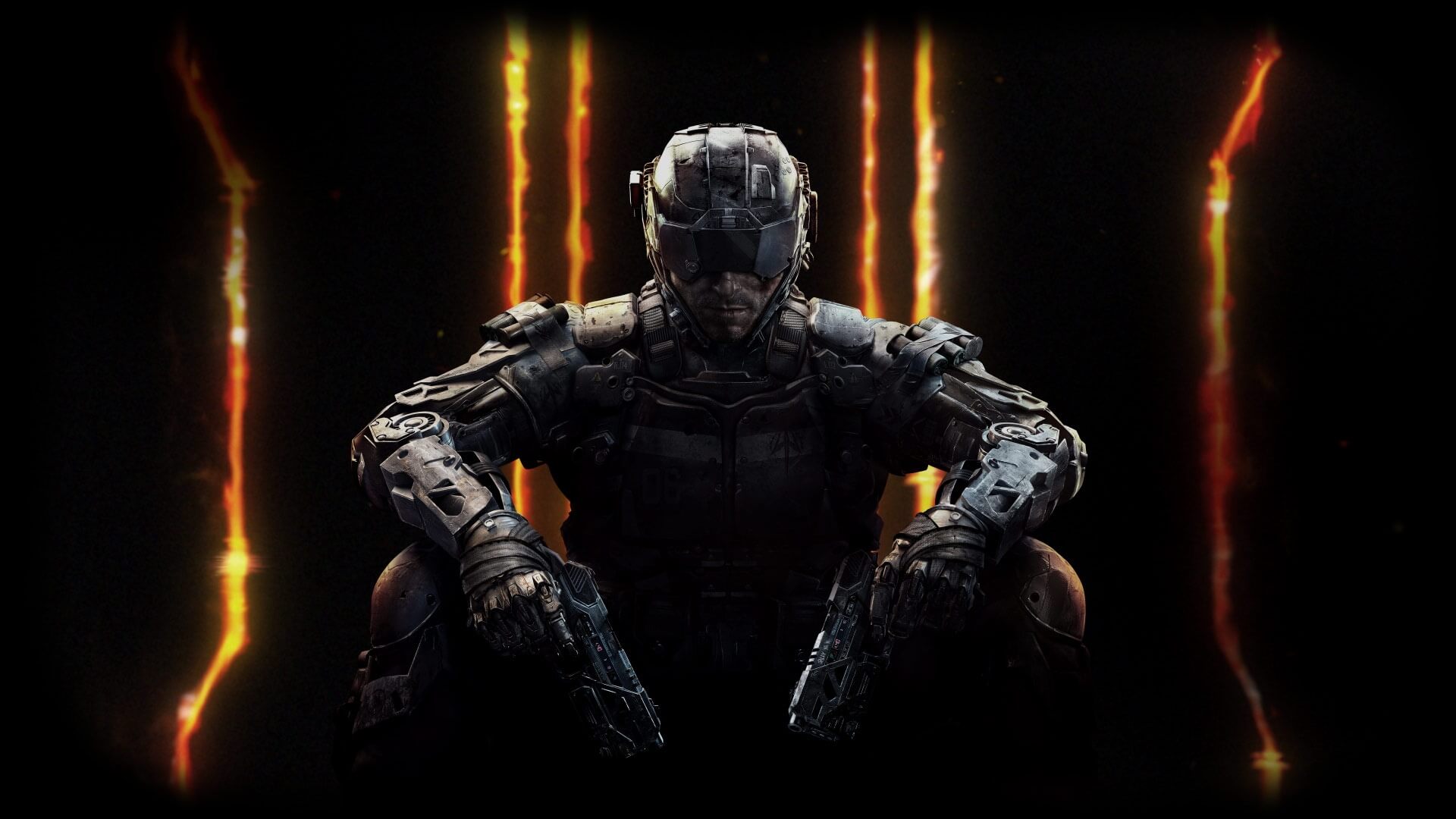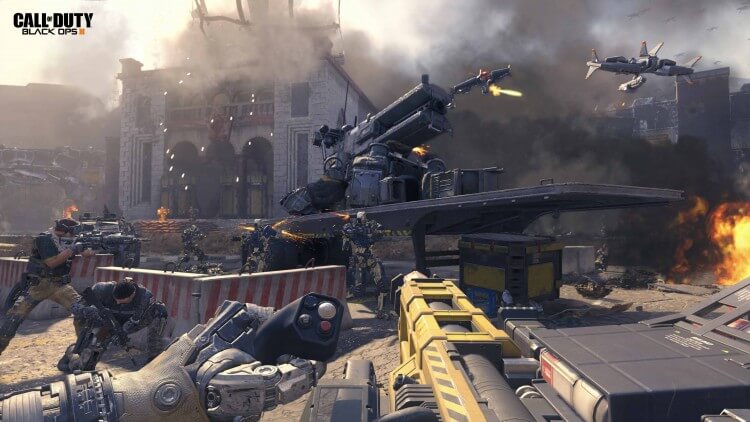Call of Duty is arguably one of, if not is, the most recognizable video game franchise of the modern era. It’s become a cultural staple in the West, receiving everything from large celebrity endorsements, becoming a pop culture icon, and there’s even a cinematic universe in the works. No seriously, publisher Activision Blizzard forming their own production studio just for this purpose. Almost every entry into this massive series has outsold its previous installment, yet there is an incredible divide among gamers. Seen by many as the be-all and end-all scourge of the gaming industry, it’s widely panned by a large portion of the gaming community. Regardless of the critical success, it’s never been able to shake the stigma of it being nothing more than a retred. Is that really the case though? Are people just mindlessly buying each entry, absent any forethought towards its design?
Hey, hey, hey…put that keyboard down, I know what you’re going to say. “It’s the same game! You’re just a Call of Duty fanboy!” Honestly, there was a time when I was on the bandwagon of hate for CoD. Furiously arguing that it’s nothing but the same shtick every single entry and lacks any kind of depth or complexity to the gameplay. The Transformers of video games one might say. The problem with the overused argument of CoD being nothing but the same game is so many other franchises do not receive the same lampooning. Any Super Mario game follows the formula (and in many ways plot) of the previous successors dating back to the original Super Mario Bros. It’s a franchise that’s built on the same core ideas but only adds a few changes here or there to alter the dynamic of the gameplay just a bit. Now there are a few obvious exceptions to this argument such as Super Mario Sunshine or Super Mario Galaxy, but did Super Mario Wii U really innovate in any way groundbreaking way? Are Far Cry 3 & 4 or any of the Uncharted games changing that drastically? This can be said for a massive number of other gaming franchises, but CoD always appears to be the main perpetrator.
Looking at the newest entry into the series, Call of Duty: Black Ops. 3, it gained a largely positive reception from critics. It’s critical score currently sits at a comfortable 81 on Metacritic, but has a staggering 4.6 from the user score. Looking through the comments, two things are really clear: This game is the same thing and it doesn’t add anything new to the franchise. Okay, I would normally agree with that if it was true…except it isn’t. Following the release of Titanfall the concept of enhanced mobility has really taken a lot of the Triple-A publishers by storm. CoD decided to expand on this idea, growing their entire game around this idea of high octane mobile combat. The shift to a far more vertical and even faster paced, (if somehow possible) multiplayer was not just slapped into the game as a whole. Every element of the stages were clearly designed for this style of gameplay and to compliment the ludicrously powerful super moves each class gets. Another franchise first by the by. Throughout the series, they have added Exo-Suits, Killstreaks, Wall running, game modes and adjustments to the highly adored “Zombie Mode.”
That isn’t to say Call of Duty is a flawless game series that can do no wrong. It being in the spotlight only means that the flaws the games do have are much more apparent. With one of the games performing poorly by both the gaming community and critics, there is a very noticeable dip in sales. Looking at statistics from statisticbrain.com, Call of Duty: Ghosts only sold around 16 million units, while the last two titles pulled sales in around the low 20 million. When the game is received with a slightly above average rating, in a series that usually ranks higher it does show that CoD is far from “untouchable.” Even the CEO of Activision, Eric Hirshberg, explained in an interview with IGN that they are looking at making some changes. In regards to a World War II setting, a staple the entire series was founded on, Hirshberg commented that “…there’s definitely a chasing of innovation and new ideas within a well-worn genre that lead people to conclusions like changing time periods. And of course, I think that opens up the opportunity for what is old is new again.”
Look, I am not going to act like the Call of Duty series are the best games in the world and you should play them every year. Nor am I going to sit here and tell you that we need to stop be critical of games like this because we absolutely do. The issue is when we are critical of the wrong reasons, letting our distaste for a series rot our ability to look at it rationally. Call of Duty is an FPS series that fits snuggly into the blockbuster action games it helped reshape. Comparing its massive lack of innovation per each new entry is unjustified as it begs the question to what would we actually want to be changed? Add too many alterations and it’s just a brand new IP that just has the same name. Games should always evolve, but we need to understand that each series is confined within its own genre. I’m not about to ask an Assassin’s Creed game turn into an FPS or Fallout into a kart racer (as amazing as that’d be!)
I get it…Call of Duty is the overbearing video game that everyone and their mother knows about. Their posters are pasted on every wall, ads in front of every television show and Gamestop hangs CoD decorations like it’s a national holiday. It’s very easy to get sick of seeing that game’s logo everywhere, but that shouldn’t destroy our impressions of a series. I’m getting tired of seeing Iron Man everywhere, but that doesn’t mean I hate the Avengers movie. In the end, we cannot expect the world from a game like this when their genre demands a very specific style. Though the constraints of a single genre is a debate for another day. Call of Duty may not revolutionize the gaming scene anymore, but it’s become a staple that produces solid entries almost every year.
Like our story? If you liked this content, please share it with your friends on Twitter, Facebook, Google+, or any social outlet!









